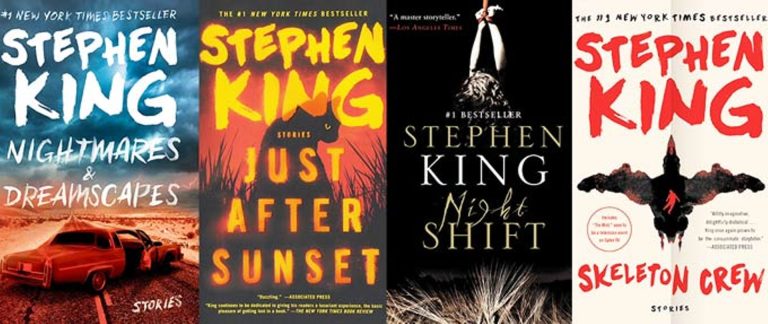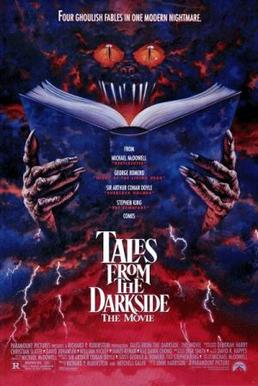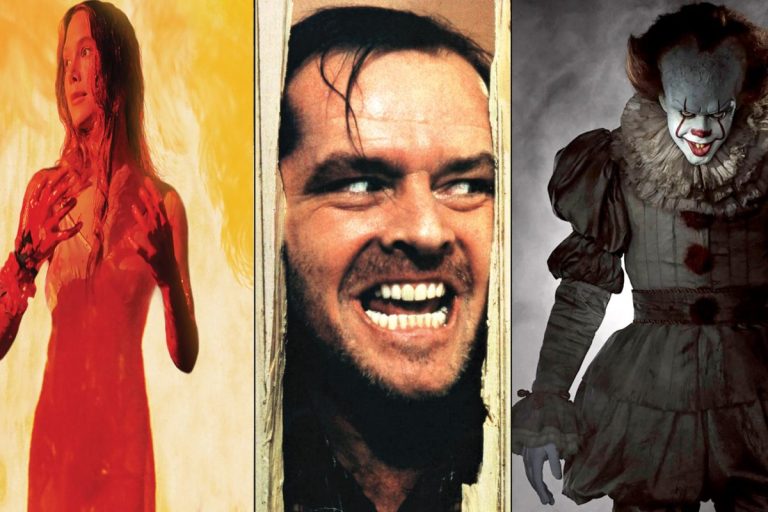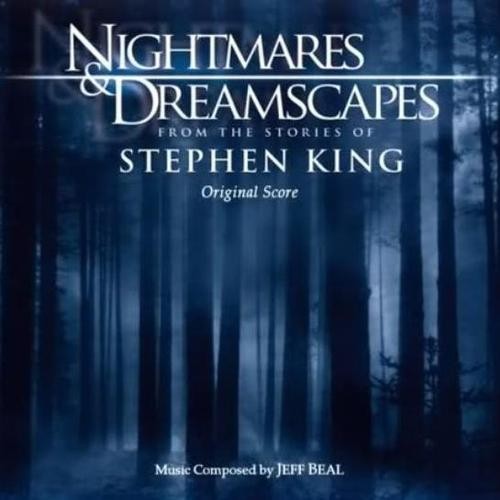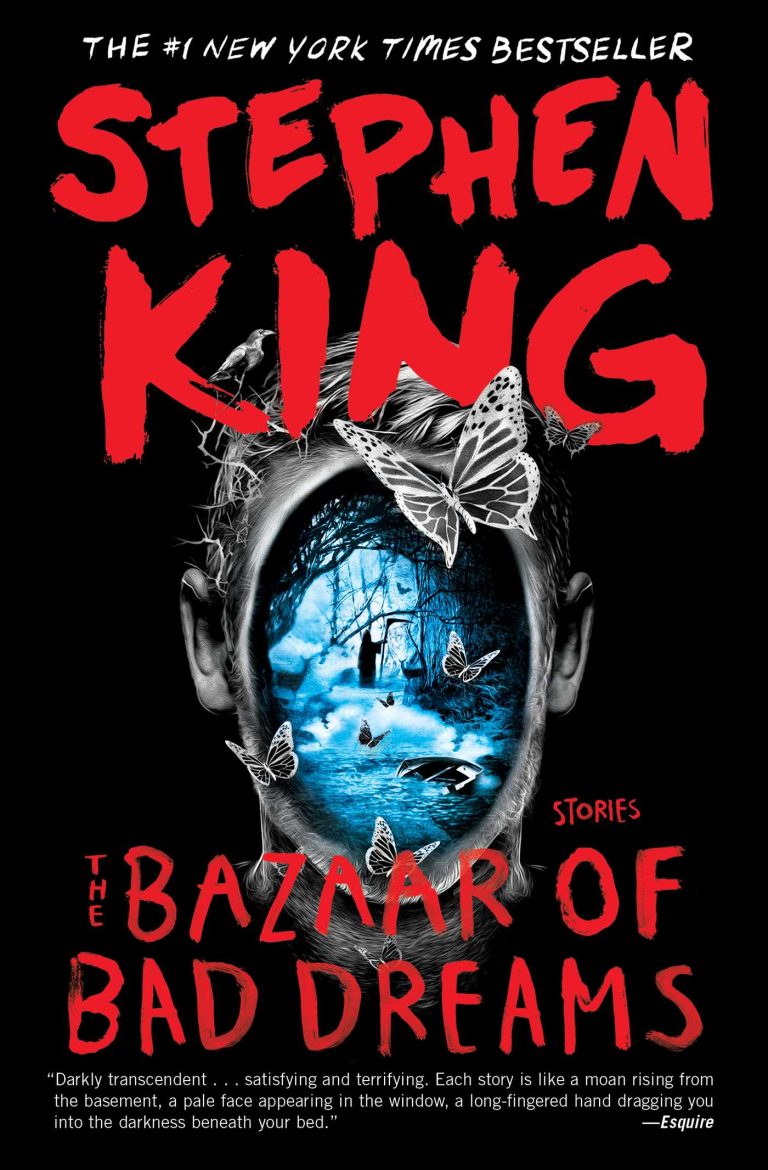Stephen King Movies: A Guide To Unforgettable Plot Devices
If you’re a fan of horror movies, then you’ve probably come across some of the terrifying adaptations of Stephen King’s novels. From “The Shining” to “It,” King’s stories have captivated audiences for decades. But what sets his movies apart from the rest? It’s the unforgettable plot devices that keep us on the edge of our seats, eagerly awaiting the next twist and turn. In this guide, we’ll explore the world of Stephen King movies and delve into the plot devices that make them so memorable.
When it comes to Stephen King movies, the plot devices are like secret ingredients that add an extra layer of excitement and suspense to the story. Whether it’s a haunted hotel, a bloodthirsty clown, or a possessed car, King knows how to create captivating plot devices that leave a lasting impression. In this article, we’ll take a closer look at some of the most unforgettable plot devices in Stephen King movies and explore their impact on the overall story. So, grab your popcorn, turn off the lights, and get ready to dive into the world of Stephen King’s unforgettable plot devices.
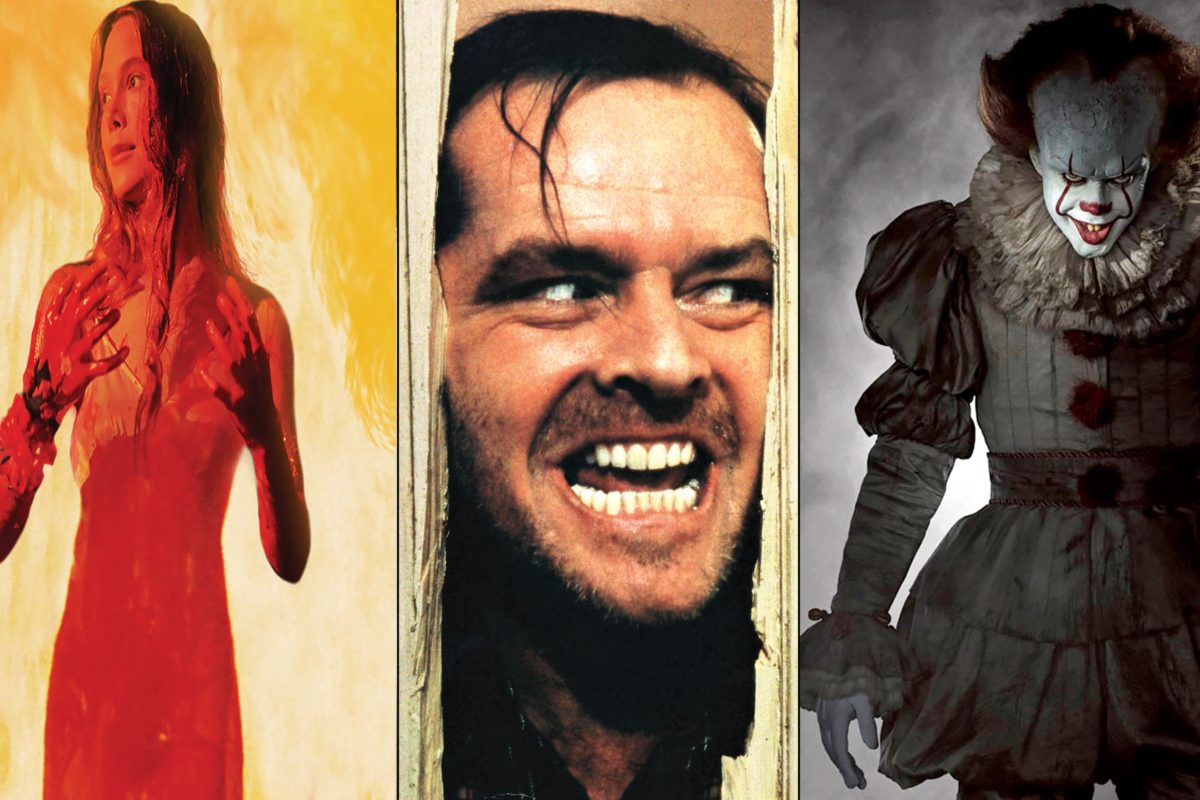
Stephen King Movies: A Guide to Unforgettable Plot Devices
Stephen King is a master of horror and suspense, and his novels have been adapted into countless movies that have left audiences on the edge of their seats. One of the reasons his stories are so captivating is the clever use of plot devices. In this article, we will delve into the world of Stephen King movies and explore the unforgettable plot devices that make them so thrilling.
The Supernatural Twist
In many Stephen King movies, there is a supernatural twist that takes the story to a whole new level. Whether it’s a haunted house, a demonic entity, or psychic abilities, the supernatural elements in these movies add an element of fear and suspense. One of the most iconic examples of this is “The Shining,” where the Overlook Hotel becomes a character in itself, filled with malevolent spirits and eerie occurrences. The supernatural twist often serves as a catalyst for the protagonist’s journey and creates a sense of unease throughout the film.
Another Stephen King movie that showcases a supernatural twist is “Carrie.” The titular character discovers she has telekinetic powers, which she uses to exact revenge on those who have wronged her. The supernatural element in this movie adds a layer of unpredictability and amps up the tension, making it a standout in the horror genre.
The Power of Fear
Fear is a central theme in many Stephen King movies, and it is often personified in terrifying creatures or entities. One prime example is Pennywise the Dancing Clown from “It.” This shape-shifting entity feeds on the fears of its victims, making it a truly terrifying antagonist. The use of fear as a plot device creates a palpable sense of dread and keeps the audience on the edge of their seats.
Another movie that explores the power of fear is “Misery.” The story follows a famous author who is held captive by an obsessed fan. The fan’s twisted obsession and her ability to instill fear in the author create a tense and claustrophobic atmosphere. The power of fear in this movie drives the narrative forward and keeps the audience hooked until the very end.
Psychological Mind Games
Stephen King is known for delving into the depths of the human psyche, and his movies often explore the dark recesses of the mind. “The Green Mile” is a prime example of this, as it follows the story of a death row corrections officer who discovers he has the power to heal others. The psychological mind games played between the characters in this movie create suspense and add a layer of complexity to the plot.
Another movie that delves into the psychological aspects of fear is “The Mist.” As a group of people are trapped in a supermarket by a mysterious mist filled with deadly creatures, tensions rise and paranoia sets in. The psychological toll of being trapped and the fear of the unknown drive the characters to their breaking points. This exploration of the human mind adds depth to the plot and keeps the audience engaged throughout the film.
The Unreliable Narrator
In some Stephen King movies, the narrator or protagonist is unreliable, adding an element of mystery and suspense. One notable example is “The Girl Who Loved Tom Gordon.” The story follows a young girl who gets lost in the woods and begins to hallucinate. As the audience questions what is real and what is a figment of the girl’s imagination, the tension builds, creating a gripping narrative.
“The Dark Half” is another movie that plays with the concept of an unreliable narrator. The protagonist, a writer, discovers that his alter ego has come to life and is committing heinous acts. The blurred lines between reality and fiction keep the audience guessing and create a sense of unease. The unreliable narrator trope adds an extra layer of intrigue to the plot and makes for an unforgettable viewing experience.
The Battle of Good vs. Evil
A recurring theme in Stephen King movies is the battle between good and evil. This thematic element adds depth to the stories and allows for complex character arcs. “The Stand” is a prime example of this, as it follows a group of survivors in a post-apocalyptic world who must choose between aligning with the forces of good or evil. The struggle between these opposing forces creates a gripping narrative that explores the depths of human morality.
Another movie that explores the battle of good vs. evil is “The Dead Zone.” The protagonist gains psychic powers after a near-death experience and must decide whether to use his abilities for good or succumb to the darker side. This internal conflict adds tension and depth to the plot, making for a captivating viewing experience.
As we can see, Stephen King movies are filled with unforgettable plot devices that keep audiences hooked from start to finish. Whether it’s a supernatural twist, the power of fear, psychological mind games, or the battle of good vs. evil, these plot devices add depth, suspense, and thrills to the stories. So, the next time you settle in for a Stephen King movie marathon, keep an eye out for these unforgettable plot devices that make his movies truly memorable.
Key Takeaways: Stephen King Movies – A Guide to Unforgettable Plot Devices
- Stephen King movies often feature supernatural elements that add excitement and suspense to the plot.
- The use of psychological horror is a common plot device in Stephen King movies, creating a chilling atmosphere.
- King’s movies often explore themes of fear, isolation, and the darkness that lies within human nature.
- Characters in Stephen King movies are well-developed and relatable, drawing audiences into the story.
- Twists and surprises are a trademark of Stephen King movies, keeping viewers on the edge of their seats.
Frequently Asked Questions
In this guide, we will explore the unforgettable plot devices found in Stephen King movies. From supernatural occurrences to psychological twists, Stephen King has mastered the art of keeping audiences on the edge of their seats. Join us as we delve into the world of Stephen King movies and discover the plot devices that make them so unforgettable.
1. What are some common supernatural plot devices used in Stephen King movies?
Stephen King is known for his masterful use of supernatural elements to create suspense and terror in his movies. One common plot device is the haunted house, where characters are tormented by malevolent spirits or ghosts. Another frequently used device is the supernatural ability, where characters possess extraordinary powers or abilities that drive the plot forward. Additionally, Stephen King often incorporates supernatural creatures like vampires, werewolves, or demons to add an extra layer of horror to his stories.
These supernatural plot devices not only captivate audiences but also allow Stephen King to explore themes of fear, power, and the unknown. Whether it’s a haunted hotel in “The Shining” or a telekinetic teenager in “Carrie,” these plot devices create a sense of unease and keep viewers hooked until the very end.
2. How does Stephen King use psychological twists in his movies?
While supernatural elements are a trademark of Stephen King movies, he also excels at incorporating psychological twists that mess with the minds of both the characters and the audience. One common plot device is the unreliable narrator, where the protagonist’s perspective is called into question, leaving viewers unsure of what is real and what is imagined. This creates a sense of uncertainty and heightens the tension throughout the film.
Stephen King also often explores the theme of insanity and the breakdown of the human mind. Characters may descend into madness, experiencing hallucinations or delusions that blur the line between reality and fantasy. These psychological twists add a layer of complexity to the plot, forcing viewers to question their own perceptions and interpretations of the story.
3. How does Stephen King incorporate childhood trauma into his movies?
Childhood trauma is a recurring theme in Stephen King’s movies, and he skillfully uses it as a plot device to explore the lasting impact of past experiences on the present. Characters often confront their childhood fears and traumas, which resurface in terrifying and unexpected ways. This not only adds depth to the characters but also creates a sense of vulnerability and emotional resonance.
Stephen King understands that childhood is a time of innocence and vulnerability, and by incorporating these themes into his movies, he taps into universal fears and anxieties. Whether it’s the trauma of a traumatic event or the haunting memories of a troubled upbringing, these plot devices allow Stephen King to delve into the human psyche and examine the effects of past trauma on his characters.
4. How does Stephen King create suspense and tension in his movies?
Stephen King is a master of building suspense and tension in his movies, and he employs various plot devices to achieve this. One common device is the slow burn, where the tension gradually escalates throughout the film, keeping audiences on the edge of their seats. This is often achieved through atmospheric settings, eerie sound design, and the careful pacing of the narrative.
Another effective plot device used by Stephen King is the use of cliffhangers and unexpected twists. Just when the audience thinks they have figured out what’s going on, Stephen King throws a curveball that keeps them guessing and craving for more. By constantly subverting expectations, he keeps viewers engaged and invested in the story.
5. How does Stephen King explore societal themes through his movies?
Beyond scares and thrills, Stephen King’s movies often serve as a platform to explore deeper societal themes. He uses his stories to comment on issues such as addiction, racism, and the dark side of human nature. These plot devices not only make the movies more thought-provoking but also give them a lasting impact.
By intertwining these societal themes with horror and suspense, Stephen King creates a powerful narrative that resonates with audiences on a deeper level. Whether it’s the examination of small-town prejudices in “It” or the exploration of addiction in “Doctor Sleep,” these plot devices elevate his movies beyond mere entertainment and make them a reflection of the world we live in.
Needful Things 1993 2160p 4K AI Upscaled (Full Movie) (Stephen King)
Final Summary: Unleashing the Magic of Stephen King’s Plot Devices
As we wrap up our journey through the captivating world of Stephen King movies and their unforgettable plot devices, it’s clear that King’s storytelling prowess knows no bounds. From spine-tingling horror to heart-wrenching drama, his narratives are crafted with the precision of a master wordsmith. Through our exploration, we’ve discovered the power of suspense, the allure of supernatural elements, and the art of character development. These plot devices have become iconic in the realm of cinema, leaving a lasting impact on audiences worldwide.
One of the key takeaways from our guide is the importance of suspense in Stephen King movies. Whether it’s the slow-building tension in “The Shining” or the nail-biting anticipation in “It,” King knows how to keep us on the edge of our seats. By carefully manipulating our emotions and expectations, he creates an immersive experience that lingers long after the credits roll. This mastery of suspense is a testament to his ability to tap into our deepest fears and desires.
Another crucial aspect of Stephen King’s plot devices is the inclusion of supernatural elements. From haunted houses to telekinetic powers, these supernatural occurrences add an extra layer of intrigue and fascination to his stories. By blending the ordinary with the extraordinary, King blurs the lines between reality and fantasy, transporting us to worlds where anything is possible. This infusion of the supernatural not only amplifies the tension but also allows for exploration of deeper themes and human nature.
Lastly, Stephen King’s dedication to character development shines through in his movies. He creates complex and relatable characters who face extraordinary circumstances, allowing us to connect with them on a profound level. Through their struggles, triumphs, and flaws, we witness the power of the human spirit and the depths of resilience. It is this emotional connection that elevates King’s movies beyond mere entertainment, making them truly unforgettable.
In conclusion, Stephen King movies are a treasure trove of unforgettable plot devices that have left an indelible mark on the world of cinema. Through the art of suspense, the inclusion of supernatural elements, and the development of compelling characters, King has crafted narratives that resonate with audiences on a profound level. So, whether you’re a die-hard fan or a casual viewer, dive into the world of Stephen King movies and experience the magic for yourself. Get ready to be captivated, thrilled, and moved in ways you never thought possible.

